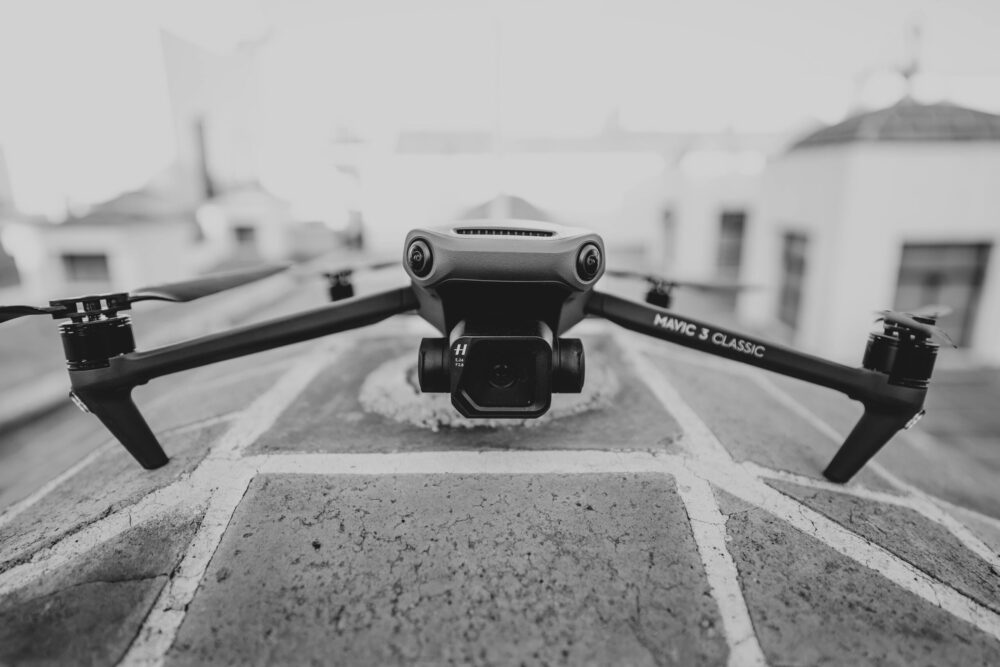Congress Passes NDAA FY25: Implications for Chinese-Made Drones, U.S. Manufacturing, and National Security
The National Defense Authorization Act (NDAA) for Fiscal Year 2025, now awaiting President Biden’s signature, includes significant provisions affecting the drone industry. The bill has sparked responses from major stakeholders, including the Association for Uncrewed Vehicle Systems International (AUVSI) and China’s DJI, the world’s leading drone manufacturer. Below is a breakdown of key provisions and industry reactions.
Chinese-Made Drones Under Scrutiny
One of the most-discussed provisions in the NDAA addresses drones manufactured in China, particularly by DJI and Autel. Congress has mandated a risk review by a U.S. national security agency, which could lead to these drones being added to the FCC’s Covered List if they are deemed a national security risk. That would mean that new drone models could not use FCC bandwidth for communications.
Chelsie Jeppson, Director of Communications at AUVSI, clarified the process in a LinkedIn post, noting, “Congress’s decision to assign the risk review and assessment to the experts at a national security agency is the right move.” She added that the agency responsible for the assessment could include DHS, DOD, DNI, NSA, and/or FBI, as defined in related U.S. code.
Jeppson also highlighted two specific aspects of the legislation:
- The bill explicitly includes subsidiaries, affiliates, and technology-sharing agreements of Chinese drone companies.
- The risk assessment report must be delivered to Congress in an unclassified form.
DJI expressed concerns about these provisions in a blog post, stating, “Drones manufactured in China are singled out for scrutiny… If no agency conducts a study to determine risk within one year, the legislation states that DJI and another Chinese manufacturer would automatically be added to the FCC’s Covered List.”
Strengthening the Domestic Supply Chain
The NDAA also emphasizes bolstering the domestic and allied supply chain for critical drone technologies. Jeppson described the measure as “good news for everyone,” while AUVSI President and CEO Michael Robbins said the bill acknowledges threats posed by Chinese-manufactured drones and supports efforts to reduce dependencies on foreign-made technology.
Robbins outlined further investments in the U.S. supply chain and defense infrastructure, noting, “Funding for Drone Detection & Mitigation is increased by $336.442M across multiple budget lines… totaling more than $1.7B.” He also highlighted support for initiatives like DIU, AFWERX Prime, and the Replicator program, which aim to accelerate the integration of autonomous systems into defense operations.
DJI’s Advocacy and Concerns
DJI welcomed the exclusion of the Countering CCP Drones Act (CCCPD Act) from the final NDAA language. The proposed legislation would have removed DJI products from the U.S. market and potentially revoked existing FCC authorizations.
In its blog post, DJI expressed gratitude to the drone community for opposing the CCCPD Act, stating, “Your tireless and thoughtful efforts… had a significant impact.” However, the company raised concerns about the NDAA’s provisions, including the lack of a designated agency to conduct the risk assessment and the absence of due process. DJI called on Congress to:
- Designate a technically focused agency to ensure an evidence-based assessment.
- Grant DJI a fair right of reply to any findings.
Looking Ahead
The NDAA FY25 sets the stage for critical developments in 2025, with Congress expected to take additional actions on counter-drone authorities and domestic manufacturing incentives. As Robbins noted, “The future of defense will be driven by autonomous systems,” underscoring the importance of collaboration between government and industry.
For DJI, the next year will be pivotal as it continues to advocate for policies that prioritize technological merit over country of origin. The company pledged to keep stakeholders informed and engaged as new developments unfold.
With the NDAA awaiting final approval, the drone industry stands at a crossroads, balancing innovation, security, and international competition. As Jeppson aptly observed, “Looking forward to a very busy, very exciting 2025.”
Want DRONELIFE news delivered to your inbox every weekday? Sign up here.
Read more:


Miriam McNabb is the Editor-in-Chief of DRONELIFE and CEO of JobForDrones, a professional drone services marketplace, and a fascinated observer of the emerging drone industry and the regulatory environment for drones. Miriam has penned over 3,000 articles focused on the commercial drone space and is an international speaker and recognized figure in the industry. Miriam has a degree from the University of Chicago and over 20 years of experience in high tech sales and marketing for new technologies.
For drone industry consulting or writing, Email Miriam.
TWITTER:@spaldingbarker
Subscribe to DroneLife here.


